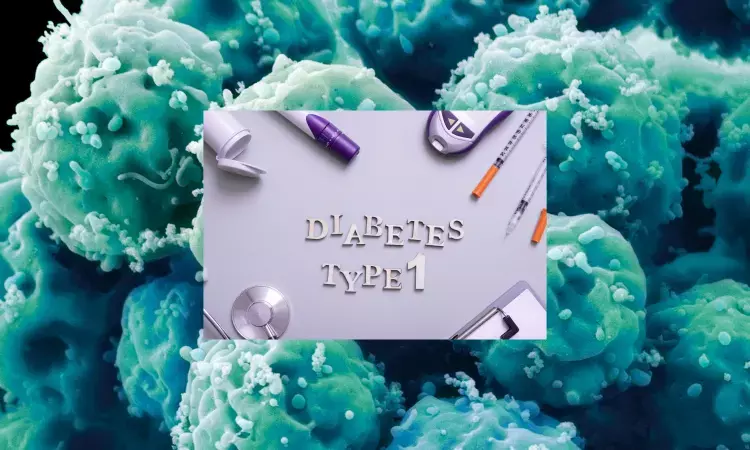- Home
- Medical news & Guidelines
- Anesthesiology
- Cardiology and CTVS
- Critical Care
- Dentistry
- Dermatology
- Diabetes and Endocrinology
- ENT
- Gastroenterology
- Medicine
- Nephrology
- Neurology
- Obstretics-Gynaecology
- Oncology
- Ophthalmology
- Orthopaedics
- Pediatrics-Neonatology
- Psychiatry
- Pulmonology
- Radiology
- Surgery
- Urology
- Laboratory Medicine
- Diet
- Nursing
- Paramedical
- Physiotherapy
- Health news
- Fact Check
- Bone Health Fact Check
- Brain Health Fact Check
- Cancer Related Fact Check
- Child Care Fact Check
- Dental and oral health fact check
- Diabetes and metabolic health fact check
- Diet and Nutrition Fact Check
- Eye and ENT Care Fact Check
- Fitness fact check
- Gut health fact check
- Heart health fact check
- Kidney health fact check
- Medical education fact check
- Men's health fact check
- Respiratory fact check
- Skin and hair care fact check
- Vaccine and Immunization fact check
- Women's health fact check
- AYUSH
- State News
- Andaman and Nicobar Islands
- Andhra Pradesh
- Arunachal Pradesh
- Assam
- Bihar
- Chandigarh
- Chattisgarh
- Dadra and Nagar Haveli
- Daman and Diu
- Delhi
- Goa
- Gujarat
- Haryana
- Himachal Pradesh
- Jammu & Kashmir
- Jharkhand
- Karnataka
- Kerala
- Ladakh
- Lakshadweep
- Madhya Pradesh
- Maharashtra
- Manipur
- Meghalaya
- Mizoram
- Nagaland
- Odisha
- Puducherry
- Punjab
- Rajasthan
- Sikkim
- Tamil Nadu
- Telangana
- Tripura
- Uttar Pradesh
- Uttrakhand
- West Bengal
- Medical Education
- Industry
Stem cell-derived islet cell therapy may be future treatment option for patients with T1D

American Diabetic Associations in its 83rd Scientific session report's findings from the ongoing clinical trial of VX-880, a phase 1/2, multi-center, single-arm, open-label study in patients with type 1 diabetes (T1D) demonstrating the potential of stem cell-derived islet cell therapy as a future treatment option for patients with T1D.
Type 1 diabetes is characterized as the body’s abnormal immune system response, attacks and destroys the cells in the pancreas that make insulin.T1D patients usually presents with impaired hypoglycemic awareness and severe hypoglycemia, that often occurs because of imbalances between insulin administered relative to an individual’s requirements at a particular time that can be affected by a multitude of factors.
The researchers presented the study results were, all patients treated with VX-880 had undetectable insulin secretion and a history of recurrent severe hypoglycemic events (SHE) in the year prior to treatment; following treatment, all six patients demonstrated restored insulin secretion, improved glycemic control, improved time-in-range, reduction or elimination of exogenous insulin usage and complete absence of SHEs in the post-Day 90 evaluation period.
The study treated two patients with VX-880 (one in Part A of the study who, per protocol, received half the target dose, and one in Part B who received the full target dose) were treated for at least 12 months of follow-up and were evaluable for the study’s primary efficacy endpoint of elimination of SHEs between Day 90 and Month 12 with HbA1c of <7%.
The key findings of the trial are
• Both patients treated for more than 12 months are insulin independent; Patient A1 had HbA1c of 5.3% at Month 21 Patient B1 had HbA1c had HbA1c of 6.0% at Month 12 (compared to 7.6% at baseline).
• This level of glucose control is highly unusual in T1D patients treated with exogenous insulin, with recent data indicating that only approximately 25% of people with T1D meet the recommended HbA1c target of 7.0%.
• In fact, both patients displayed HbA1c levels that are below the diagnostic threshold for diabetes (6.5%).
• Both patients also showed over 95% time-in-range, well above the ADA recommended target of 70%, and substantial improvement over baseline.
• The three additional patients in Part B, each administered the full target dose of VX-880 given as a single infusion, have had up to 90 days of follow-up and also have shown insulin production, reduction in HbA1c, improvements in time-in-range and reductions in daily insulin usage.
• Their trajectory is consistent with that observed in the two patients with more than one year of follow up at equivalent periods of follow-up after VX-880 infusion.
The researchers concluded “These new findings demonstrate the potential of stem cell-derived islets as a future treatment for patients with type 1 diabetes, signaling a new era that could potentially remove the need for exogenously administered insulin to achieve glycemic control”.
Reference: Glucose-Dependent Insulin Production and Insulin-Independence in Type 1 Diabetes from Stem Cell–Derived, Fully Differentiated Islet Cells—Updated Data from the VX-880 Clinical Trial, Presented on Friday, June 23, 2023 in San Diego, California at 3:50pm PT as an oral presentation.
MSc. Neuroscience
Niveditha Subramani a MSc. Neuroscience (Faculty of Medicine) graduate from University of Madras, Chennai. Ambitious in Neuro research having worked in motor diseases and neuron apoptosis is interested in more of new upcoming research and their advancement in field of medicine. She has an engrossed skill towards writing and her roles at Medical dialogue include Sr. Content writer. Her news covers new discoveries and updates in field of medicine. She can be reached at editorial@medicaldialogues.in
Dr Kamal Kant Kohli-MBBS, DTCD- a chest specialist with more than 30 years of practice and a flair for writing clinical articles, Dr Kamal Kant Kohli joined Medical Dialogues as a Chief Editor of Medical News. Besides writing articles, as an editor, he proofreads and verifies all the medical content published on Medical Dialogues including those coming from journals, studies,medical conferences,guidelines etc. Email: drkohli@medicaldialogues.in. Contact no. 011-43720751


